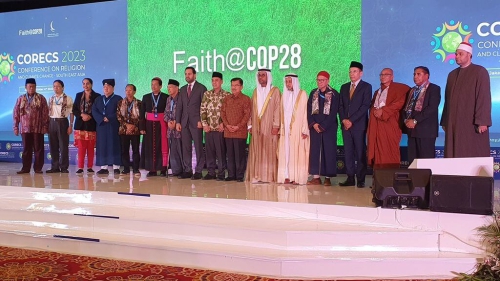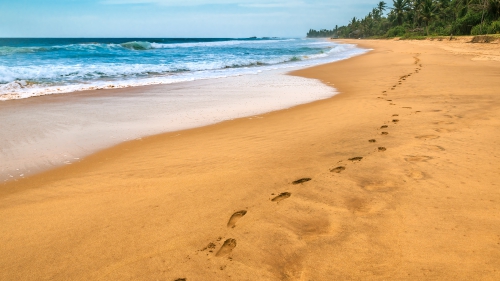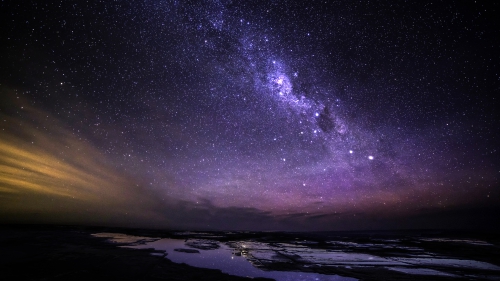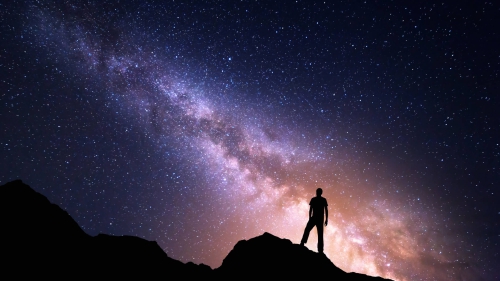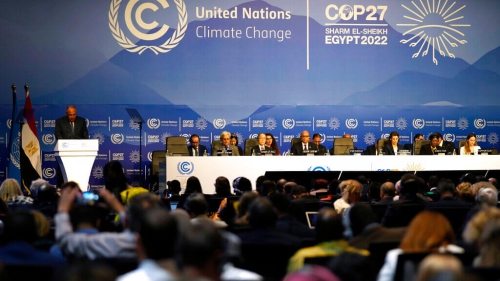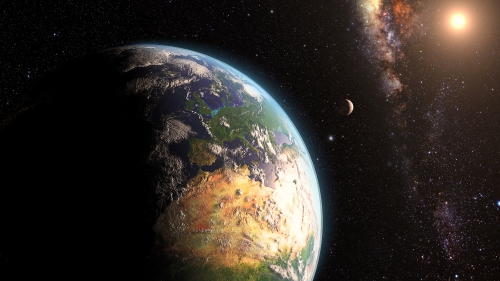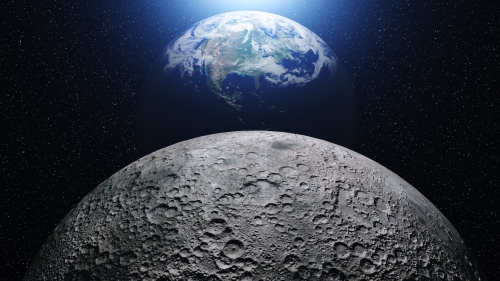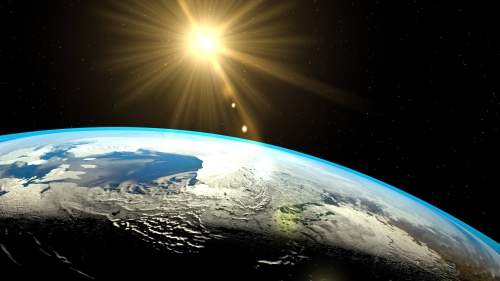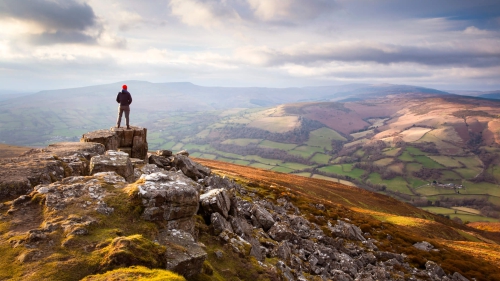Humans vs the Environment

Protecting the environment isn't a "liberal" idea; it's everybody's business. Liberal or conservative, Democrat or Republican, the environment provides life support for us all, and if we fail to recognize that, we are truly doomed as a civilization. To help explain this, I've put together a simple thought experiment. It begins with three undeniable truths about humans and the environment:
Truth #1 - The Earth's resources are limited. This should be self-evidence, but some people still don't get it. The Earth's resources - oil, forests, water, energy, and so on - are finite. They do not exist in infinite quantities. If they did, they would obviously be larger than the Earth itself (and would, in fact, fill the universe). But they don't fill the universe. They are contained within the boundaries of planet Earth, and therefore they are limited. Of course, many of Earth's resources can be either regenerated or recycled, but that only happens over time - usually a long time. In the case of oil, it's hundreds of thousands of years. For fossil water it's much the same. The rate at which modern human civilization is using up these resources is orders of magnitude faster than the rate at which they can be naturally regenerated. This holds true for oil, water, topsoil, forests and more.
Truth #2 - Each person living in modern civilization consumes some amount of the Earth's limited resources. This should also be self-evident: People consume resources. When you drive your car, you're obviously consuming limited natural resources. When you buy a car, you're consuming many other natural resources (all the elements that went into making a car), too. This is true even when you buy a solar panel. Every time you turn on a light switch, or open a package of food, or swallow a piece of food, you are consuming some amount of the Earth's limited resources.
The sum of your consumption is called your "ecological footprint," and your ecological footprint is much larger than the immediate space you might call your home. The things you consume in your home require the resources of a much larger area far outside your home. A human child born in America today, for example, will consume 45,000 pounds of metal in their lifetime (through the products they purchase). That's 45,000 pounds of metal that must be mined, processed, transported and manufactured into consumable products, and metal mining is a very dirty business, by the way, even if that metal goes into making clean energy devices such as wind turbines.
Truth #3 - Humans are altering the environment. You can't argue with this (although some people ridiculously try). Human activity is altering our environment in a huge way, from the massive deforestation of the planet to the release of gases into the atmosphere. We've poisoned the rivers, destroyed natural habitat, polluted the oceans (Gulf of Mexico, anyone?) and altered the chemical composition of the atmosphere. These are undeniable scientific truths. No sane person can reasonably argue that human beings have not radically altered the environment of our planet over the last 200 years. If you visited North America 200 years ago, for example, you wouldn't even have recognized it as the same continent dominated by human beings today. A few hundred years ago, North America was teeming with life, with huge old-growth forests, pristine rivers and abundant plains. Today it is relatively dead, having been over-developed, over-paved and over-population to a point so extreme that our ancestors would largely consider it "dead".
Truth #4 - Humans really like to have babies. This is also self-evidence: People like to procreate. Every family, it seems, wants children, and those children want their own children, too. In general, human beings want to procreate without limitation. This, of course, leads to an explosion in population growth. We've seen this explosion over the last two hundred years as the Earth's population has grown from less than one billion people in 1800 to nearly seven billion today. Human beings do not consider their impact on the global population when they procreate. The decision to have children is made privately, selfishly, without regard to the impact on the planet. One more child seems like no big deal from the point of view of a couple that wishes for another son or daughter, but multiplied by billions, these decisions to procreate en masse lead to overpopulation, which leads to over-consumption of the planet's limited resources.
The Easter Island effect: Now let's work our little thought experiment. Given the four simple truths described above, it is only a matter of time before the continued procreation of human beings collides with the reality of limited resources, causing a crisis of unsustainability. At some point, in other words, the continued expansion of human beings will destroy so much of the natural environment (and use so many natural resources) that there will not be enough resources available to support the continuation of the existing population. I call this the "Easter Island effect," in reference to the way in which the natives of Easter Island chopped down all their trees to build ever-larger monuments to themselves, and in doing so they destroyed their entire ecosystem and soon perished. The entire human civilization is now pulling an Easter Island on a global scale.
Our two choices: Given that the unlimited expansion of the human population must inevitably use up key resources required to sustain human life, it stands to reason that there are only two choices for how we human beings can choose to deal with the situation:
Choice #1- We can acknowledge the ecological impact of human beings on our planet and make conscious choices to live within the bounds of sustainable balance with our planet (i.e. keeping our population size relatively stable by limiting runaway population growth, reducing our ecological footprint, respecting the natural environment that supports life on our planet, etc.).
Choice #2- We can continue our mindless population expansion and resource exploitation while ignoring any long-term consequences. This is the definition of stupidity, and yet it is precisely the path that modern human civilization is now choosing. It also seems to be the chosen path of "anti-environmentalists" - people who resist the idea that we need to protect the environment at all.
Sadly, human civilization has decided to go with choice #2. I believe the future of modern civilization is now set. Population expansion and resource depletion will soon collide with the limitations of our planet and result in a cataclysmic collapse of our civilization. We human beings are pulling off the Easter Island scenario, but with more than just trees: We're doing it with oil, water, soil and habitat. We are destroying the only planet that can keep us alive, and there now appears to be no stopping this self-destructive tendency of the human species.
I have personally seen no evidence that the current human species is capable of long-term, sustainable balance with any ecosystem. It lacks the intelligent foresight necessary to anticipate such outcomes and make adjustments well in advance of them coming true. Some people among us even argue against environmental protection, not realizing they are essentially arguing for their own self-destruction.
Other who are more thoughtful argue only against the fear of a world government enforcing environmental regulations at the expense of losing personal freedoms. This is a legitimate concern, and I happen to agree with these concerns. "Protecting the environment" can all too easily become a slippery mantra for world domination over individual freedom. The best way to avoid losing freedom while saving our environment is through education of the public that urges people to make better decisions without turning them into criminals if they fail to make those decisions.
Can humanity save itself? Saving human civilization from its own ignorance is no easy task. It will require intelligent, forward-thinking business leaders who see the long-term picture and who genuinely care about the future. Yet sadly, there is no such thing. Business leaders are, by definition, focused on the next fiscal quarter, not the next century. They will ALWAYS mortgage our collective future to increase their immediate profits.
There is almost no such thing as a successful business person who is simultaneously an effective steward of our planet's natural resources. The simple act of generating more business - in any business - always results in more consumption because our entire economic system is based on consumption. It's even true about internet businesses, by the way. Every bit and byte you consume over the internet has an indirect environmental cost due to the electricity consumption of the CPUs delivering that content to you as well as, more importantly, the enormous cooling demand in data centers that spend fortunes just cooling all the computers running there.
The fact that our economic activity is fundamentally based on consumption rather than conservation demonstrates why humanity is doomed to destroy itself. After seeing the failure of so many environmental summits, I'm convinced of it. I don't see any possible way that human beings will suddenly gain the intelligence and foresight necessary to live in balance with our natural world. Not without a crisis to teach everybody a few lessons, anyway. But even the Gulf Coast disaster isn't fundamentally changing the way business leaders think about consumption. They think it's just an "oil problem" not a global problem with the business models that drive our world into a self-destructive cycle of mindless consumption.
What may be coming in the next few years: When the population continues to expand and most of the world's resources are wiped out, the human population will plunge into a time of great darkness. The loss of life will be immense - perhaps as much as a 90% reduction in the planetary population. Ecosystems will fail, crops will fail and civilization itself will be brought to its knees. It won't take much to crash the current global system. Once the power grid is down for as little as 5 days, there's almost no bringing civilization back - at least not modern civilization as we know it. Once the population is drastically reduced, the natural environment will have a chance to recover. Plants and animals will re-populate areas once lost to high-density human populations. And once the abundance returns, humans will again have the abundance necessary to re-populate, too. Hopefully future generations of human beings will learn from our present mistakes and not pursue the same path we did - the path of endless consumption of the planet's resources to the point of destruction.
On a long time scale, you will likely see human population rising, then crashing, then rising again from the ashes of a collapsed civilization. This is the ebb and flow of the future of life on Earth. You might even call it a "natural" cycle of human population expansion, then collapse, followed by expansion and yet more collapse. It's very similar to the way a virus invades a human body and multiplies until it kills the very host that once gave it life. In terms of big-picture behavior, humans are much like a virus on our planet.
This cycle of destruction and rebirth could be balanced out, though, by a sufficiently intelligent species gifted with sufficient foresight to see what's coming and make early adjustments to avoid the population collapse. Our current human species, sadly, is not sufficiently intelligent to do so."
Source: http://www.naturalnews.com
Related Suggestions
So, what you are saying is that there are no more Bedouins left in Saudi Arabia. Guess what. Cross them of the list of the people who will survive the dearth of resources. That is life.
People have become selfish, and believe it is their "right" to use whatever they want. Humans have forgotten that with right comes responsibility. Even as someone who tries to live "green" I find it almost impossible. Even the "green" products we buy come in plastic bottles or are mass produced in a chemical spewing plant.
Damn the industrial revolution, I say, we were better off without it!
The only part I don't really agree with is the
Truth #4, for example, my great grandma came from a family with 15 kids, she went on to have 12 kids, my grandma had three, and I'm an only child.
Most families today are not that large, but a four person family today consumes even more than a 15 person family would have 100 years ago. Also, we now have this obsession with living forever, so we keep people living long past their natural lives.
Not to mention vaccines and cures for everything, thus eliminating natural selection, and population reduction. As an individual, I appreciate this,
but for the population it is a terrible thing.
If it weren't for taxes, I would be happy to buy a farm and "live off the land"...maybe I'll just become Amish instead.
We are all sliding in a rapid downwared slope towards disaster. That some outsider divine agency will mankind is a myth.
Cataclysmic collapse? Sudden collapse? I doubt it. However, it will be slow and steady,but not sudden. However, the cumulative effect of 100-200 years will be equal to cataclysmic collapse. It is expected that the planet can support a population of about 1 Billion people with renewable resources.
The population of muslim countries is growing at an abnormally high rate. Will they be the most to suffer? Probably. Will their population decrease the most? Probably.
In reality, no region, irrespective of religion, will be immune. Oh, yes, Bedouins in the desert will have not suffer; they don't use any resources any how. The most affected will be the regions which use the most resources (North America, Western Europe, Japan); the social, political and economic changes will be extremely violent (I will be dead by the time party gets going; I will miss the fun).
Ah, don't blame any God for it. No God will protect human beings from their own stupidities.







